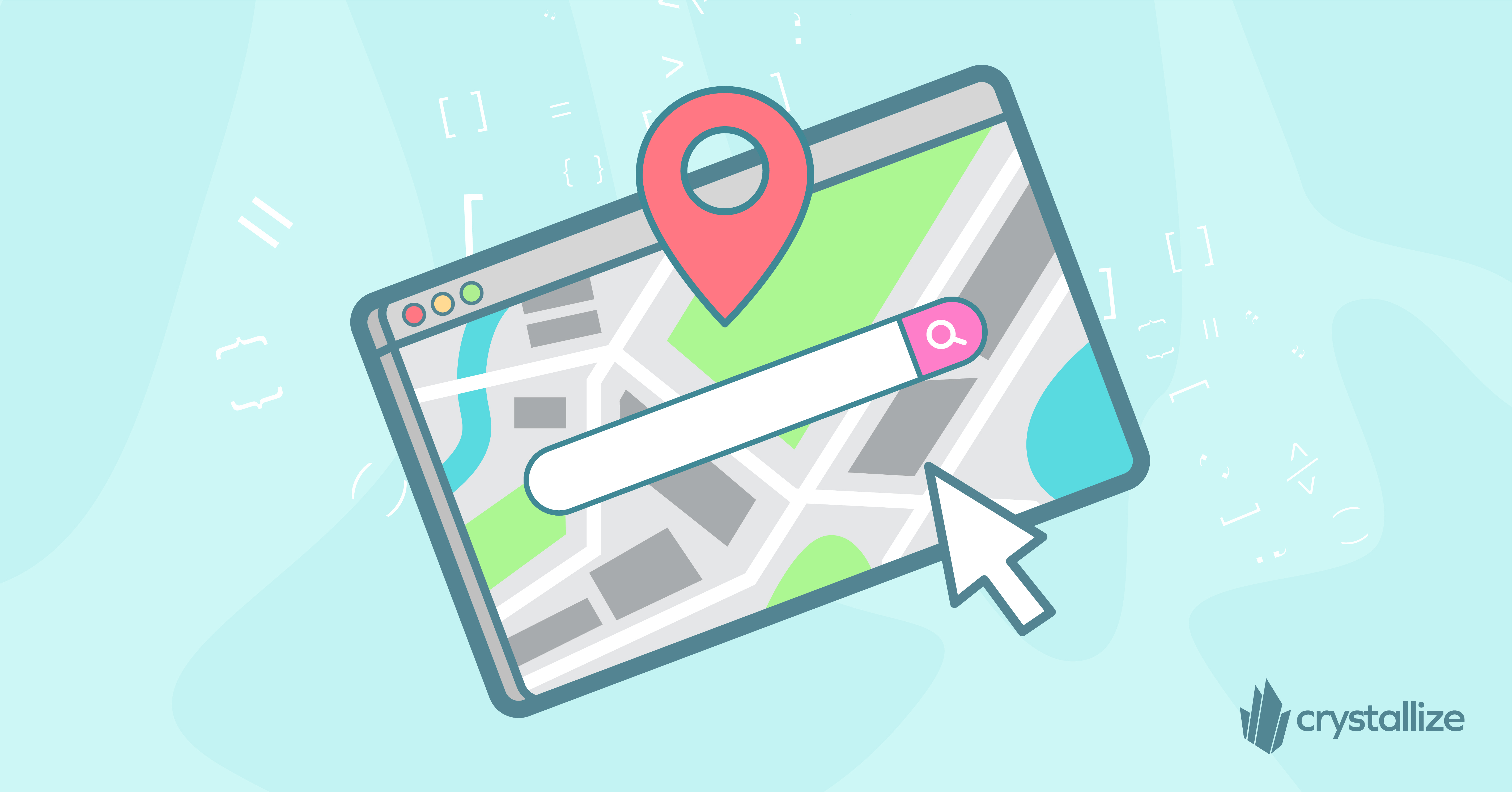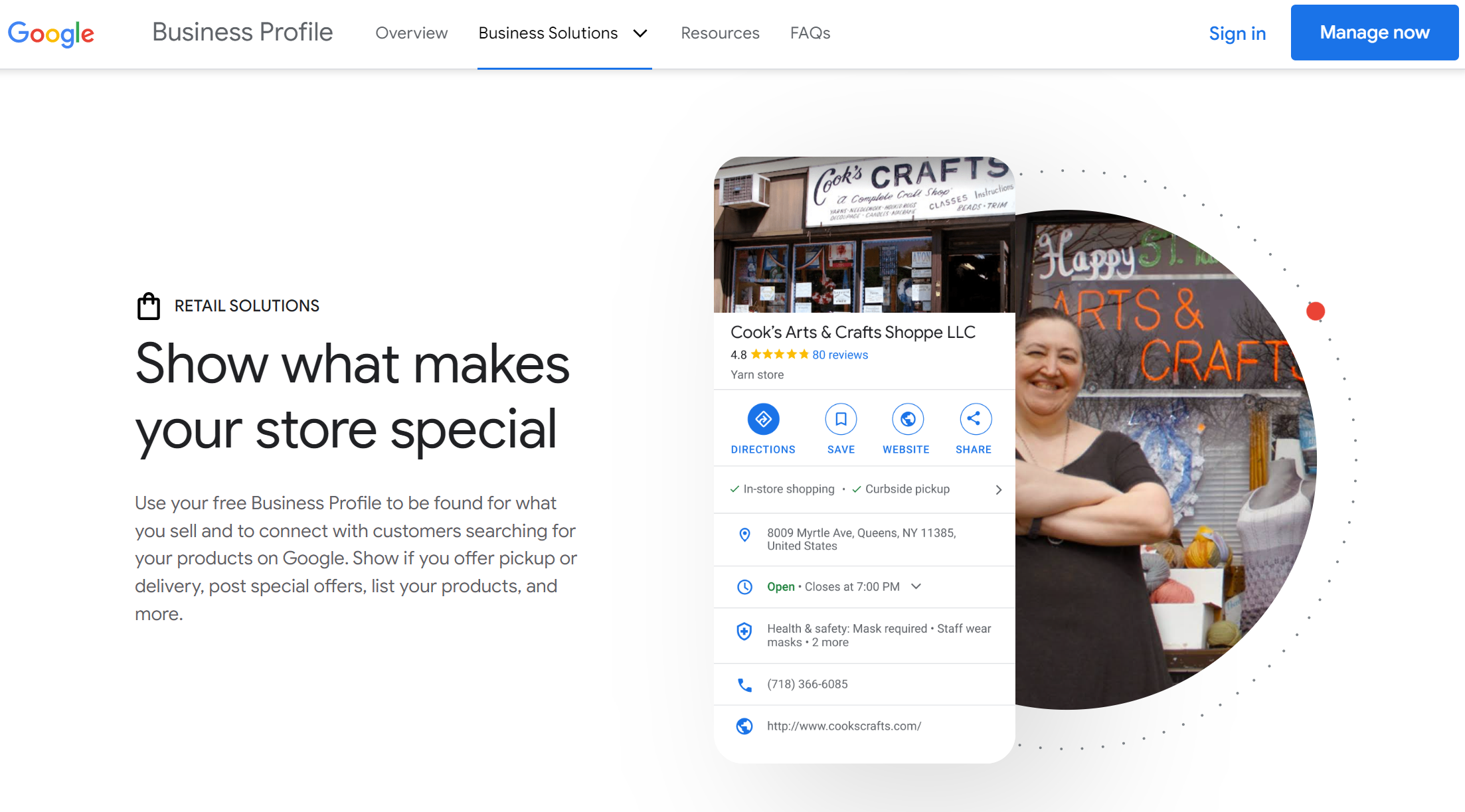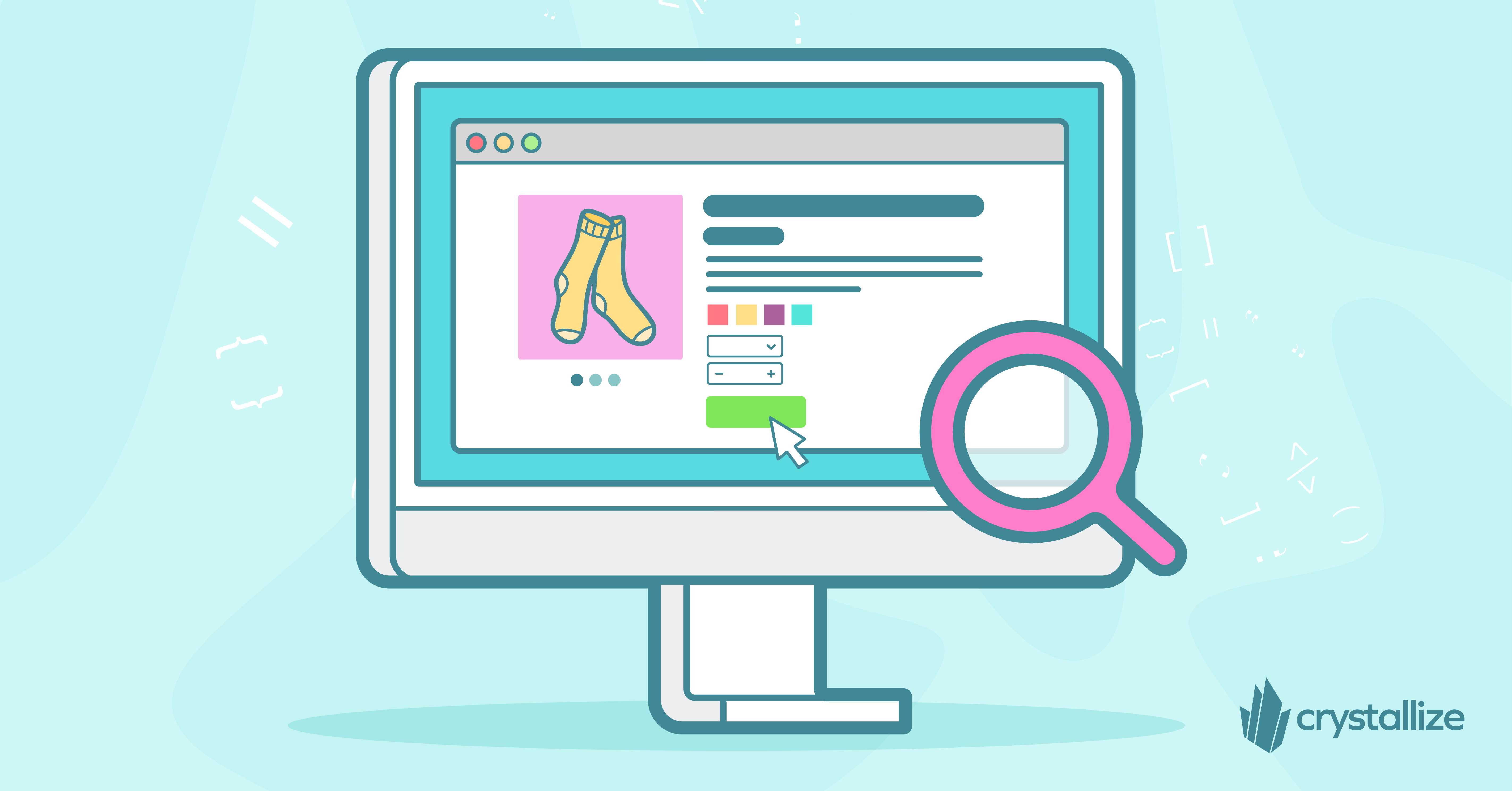Local SEO for eCommerce: How to Optimize Your Store for Local Search?
Local SEO focuses on optimizing a website's online presence to attract more local customers and improve search engine rankings for location-based queries.

If the above is not convincing enough, here is another stat for you to think about.
Buyer journeys have changed in recent years, and much of it has to do with mobile phones and how easy and convenient it is to find whatever you need, whenever you need it, wherever you are.
As consumers increasingly choose online purchasing over traditional brick-and-mortar storefronts having an online store is no longer a luxury. It is a necessity for any and all local businesses…if they wanna compete in search results, that is.
What is Local SEO?
Local SEO refers to optimizing a website and its online content to increase visibility for targeted location-based queries. It involves a combination of on-page optimization, local business listings, online reviews, and various other strategies tailored to the specific needs of local businesses.
We already talked about ecommerce SEO, right? So you won't see advice like optimizing your website for mobile matters or optimizing images matter here. Instead, we'll focus on things specific to appearing in local pack and in location base search results.
A subtle difference between the two. When a user searches with local intent, the local pack appears at the top of search engine results pages (SERPs). There are a couple of display variations based on the query, industry, and device you are using.
Location-based search results you get when you search for something based on yours and its relative physical locations. The local pack usually shows in location-based search results.
This brings us to a question.
How Does Google Determine Local Ranking?
As with anything Google, no one really knows. But, G has defined what influences local pack ranking the most, besides the classics we discussed in our eCommerce SEO guide.
Local results are based primarily on relevance, distance, and prominence. You can read more about these from the horse's mouth here. While we don’t know the ranking factors that influence these exactly, Whitespark's 2023 Local Search Ranking Factors Survey offers a pretty good idea of what they may be.
What we want here is to help you understand what actions can influence the above and help you rank better.
Relevance can be influenced by your website's on-page SEO efforts that aim at bringing both topical and geo-targeted relevance to your website/business.
Given that the distance is how far each potential search result is from the location term used in a search, to rank, you have to have a business address (your brick-and-mortar store) connected to that location term, whether that is a state, city, or neighborhood.
Prominence refers to how well-known a business is. In essence, how big of a deal your business is on all available digital channels. We talk about reviews and Google My Business presence here. We talk about backlinks from local businesses. We talk about citations across the internet, i.e., making sure name, location, address, website, and phone are consistent.
Let's see what we can and should do to influence these.
Google My Business
Setting up a Google My Business account correctly is increasingly becoming the most important part of local SEO. On top of that, thanks to your GMB profile, you'll be included in Google Maps, Google Search Knowledge Panel, and Google Search Local Results. There are a couple of optimizing segments/practices you need to be aware of.
Consistency of Information
The more complete and accurate your GMB profile is, the more likely you'll appear in local searches for your area and targeted keywords.
Consistency is crucial, so make sure your business information matches your GMB profile, website, social media profiles, and across all citations. Discrepancies can lead to Google not knowing which information is correct or even attributing your stuff to your competitors.
If you have multiple store locations, you should build separate GMB Listings and website landing pages (more on that later) for each.
As for actual info in your GMB profile, use the real, official business name, local store address, and local phone number (NAP). The right primary Google Business Profile category (can be keyword oriented; it helps). Compelling, industry-related description (please, no keyword stuffing) with correct working hours. And a lot of images and videos (a huge plus). All of this provides a depth of profile and shows the legitimacy of your business.

Reviews / Online Reputation Management
Whether they are good or bad, reviews go a long way when it comes to gaining a customer's trust. Not only do they influence how customers perceive your brand, but they are also important in Google’s eyes, i.e., reviews and ratings from local customers can influence your rankings.
Keeping them in check is part of a never-ending online reputation management process, so handle them carefully and a.s.a.p. Take time to thank the good reviews. After all, engagement with customers always comes with even more positive effects.
As for negative ones, act on the review politely but take it offline and respond more via the email address or phone number to resolve the issue.
You can do a couple of things to get more reviews, namely encourage your existing customers to write them through your social media pages, website, and emails. But you can’t really influence the results or the outcome of a review.
Respond promptly and professionally to positive and negative feedback to demonstrate your commitment to customer satisfaction. Addressing customer concerns and resolving issues can help mitigate any potential negative impact on your online reputation, add to your GMB score, and influence prominence.
GMB Posts
Use GMB posts because they are free to display ads for your business. Use them the same way you'd use a website blog. Focus on the message you want to share and enhance it with a unique photo or video.
Running a promo or discount for specific products? Make a GMB post. Introducing new products? Make a GMB post. Making changes to the website/store? Make a GMB post.
💡Consider.
Five GMB factors (most likely) impact rank directly: title, URL, categories, reviews, and pre-defined services. Work on those the most. What feels organic and natural + keyword for your business is what you should be doing.
Still, you can explore a couple of hacks like the ones in this post: 21 Local SEO Moves & Situations I Have Never Seen a Business Penalized for. Just keep in mind that I am not suggesting you practice those. But if you have a curious mind check it out.
Website / Landing Pages
GMB profile, social media channels, communities… it is great to have them all, but your website is your most important channel. Everything else serves the purpose of enhancing that channel. Ensuring it works flawlessly should be your top priority, regardless of the business goal.
Start with the basics. Technically that means you have a performant website, easy to navigate and crawl by visitors and web crawlers. It also means you rely on structured data, for example, local business schema markup with the same info you have on your GMB profile. Schema markup helps search engines understand your content better, leading to improved visibility in local search results and potential inclusion in rich snippets.
Content or on-page vise means you either focus your whole website on product and location keyword related or build location-focused landing pages. Remember that pages should have meaningful and valuable content with relevant keywords to increase SERP ranking.
For example, suppose you are running a business with a single sore location, like Skien's Cykkelfabrik. In that case, you focus on the area (Skien) and industry-related keywords (classic bikes, retro bikes, etc.). For a business with multiple store locations, like Trek shop, that means building location-based landing pages and separate GMB profiles.
In both cases, you can write blog posts that mention regional news, events, or activities to capture the local audience's interest. Create content to support neighborhood concerns through your company, i.e., produce regional/local content.
💡Consider.
Yes, it's not a deep dive into website and SEO, but we already talked extensively about the best SEO for eCommerce practices, and we don't want to repeat ourselves. It just does not seem like the right thing to do.
There is an easy-to-use eCommerce SEO checklist that breaks down our massive 47 pages long free pdf guide that covers all you need to be aware of when planning your online store's SEO strategy and more.
If you don't have time to read the guide, use the checklist, or why not!?, DOWNLOAD the PDF version of the guide with bonus content for easier offline reading and sharing with coworkers.
Link Building for Local SEO
In the local SEO game, acquiring backlinks is essential in establishing your business's trust/authority, relevance, and prominence. If you ask me, getting a backlink is one of the hardest things in SEO.
We’ve already talked about link building for SEO, so let me add the context here. There are two aspects of link building, i.e., link quality and link reach out. The quality of a link depends on domain/page keyword and industry affiliation and authority, anchor text of a link, page content quality, and link place.
Having a location as an essential overall factor in choosing links (kind of) narrows what you can and should do. Start by looking at links to similar websites and businesses in other cities, take their best ideas, and then apply them to your city.
For example, for Skien's Cykkelfabrik website, the best course of action would be to look at what bicycle shops/craftsmen in Oslo are doing. We’d use the ahrefs or SEMrush (SEO tools) backlink checker features to find out who links to them and how and then find similar pages/websites in the Skien area.
In most cases, the best backlink candidates are going to be one of these:
- Local business directories. List your business on other online business directories and directories specific to your area.
- Local news. Paper, online, TV, and radio. All of these are looking for local information. Make something newsworthy.
- Local businesses and events. Exchange links with companies you partner with or sponsor a local event.
- Local influencers. For example, if you are a restaurant, get in touch with local food bloggers.
- Cover local news. Get in touch with all the above by covering them first on your website. You'll increase the odds for a backlink significantly.
But also more general review websites and industry-related forums.
Once you’ve found the pages/websites, it’s time to reach out. The how!? part of reaching out is what makes link-building a tough cookie. Returns on time invested in reaching out are small, and contrary to what you may find on the internet, there are no silver bullets or magic templates you can use. The best advice anyone can give you is to be original, don't be annoying with follow-ups, personalize your outreach as much as possible, and test and trial.
❓Quick FAQs.
Q: What is the importance of local SEO for small businesses?
A: Local SEO is vital for small businesses as it helps them increase their online visibility within their target market and attract local customers. It allows small businesses to compete with larger enterprises locally and establish a strong presence in their community.
Q: How long does it take to see results from local SEO efforts?
A: The timeline for seeing results from local SEO efforts can vary depending on various factors, such as the market's competitiveness, the current state of your online presence, and the effectiveness of your optimization strategies. In some cases, businesses may start seeing improvements in their local search rankings within a few weeks, while for others, it may take several months to see significant results. Consistency, ongoing optimization, and monitoring are crucial to achieving long-term success with local SEO.
Q: How can online reviews impact local SEO?
A: Positive reviews can enhance your business's reputation, increase trust among potential customers, and improve your search engine rankings. Encourage satisfied customers to leave reviews and respond to positive and negative reviews to show your engagement and commitment to customer satisfaction.
Q: Is local SEO only beneficial for brick-and-mortar businesses?
A: Nope. Local SEO is beneficial for both brick-and-mortar businesses and online businesses that target specific geographic areas. Even if your company operates solely online, optimizing your website for local searches can help you reach a more targeted audience and increase your visibility in specific locations.
Q: How often should I update my local business listings?
A: It's crucial to regularly update your local business listings to ensure accuracy and consistency across different platforms.
Why Local SEO?
Local SEO for eCommerce helps drive traffic to stores through online leads more than any other strategy.
You can throw search ad dollars for near me keywords, but ad spending does not guarantee clicks. Anything over 2% can be considered an above-average CTR. Social network marketing is usually more about the brand and presence than anything else (depending on the industry). Yes, you can and should do it, but unless you through some $ into ads, organic returns are much lower than one would expect. Emails … well, how many do you have?
If you are running a local business and your primary audience is the locals, besides word of mouth, there is simply no better way to step into the fray of that local audience.
You Should Also Read👇

SEO for eCommerce Product Pages: The Basics
Great product pages are vital to a successful online store and should be optimized for SEO and high conversions. Let’s look at the best practices for doing that.

eCommerce SEO Guide: How To Drive Organic Traffic In 2025?
A year has passed since our last iteration of the eCommerce SEO guide, and SEO, as we know it, has changed…a lot.

eCommerce Conversion Rate Optimization (CRO): Boosting Your Conversion Rate Made Simple In 2023
Are you struggling to convert your website traffic into paying customers? Are you tired of spending hours and resources on driving traffic to your site with little to no return on investment? Then it's time to focus on Conversion Rate Optimization (CRO).
